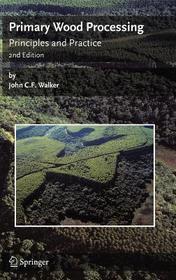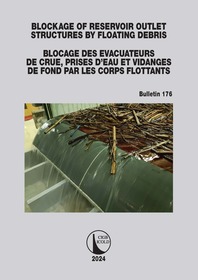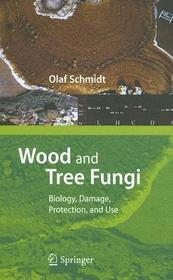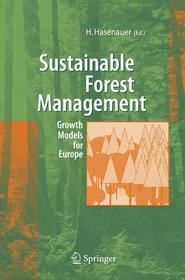
Primary Wood Processing
Principles and Practice
-
12% KEDVEZMÉNY?
- A kedvezmény csak az 'Értesítés a kedvenc témákról' hírlevelünk címzettjeinek rendeléseire érvényes.
- Kiadói listaár EUR 192.59
-
79 876 Ft (76 073 Ft + 5% áfa)
Az ár azért becsült, mert a rendelés pillanatában nem lehet pontosan tudni, hogy a beérkezéskor milyen lesz a forint árfolyama az adott termék eredeti devizájához képest. Ha a forint romlana, kissé többet, ha javulna, kissé kevesebbet kell majd fizetnie.
- Kedvezmény(ek) 12% (cc. 9 585 Ft off)
- Kedvezményes ár 70 291 Ft (66 944 Ft + 5% áfa)
Iratkozzon fel most és részesüljön kedvezőbb árainkból!
Feliratkozom
79 876 Ft

Beszerezhetőség
Becsült beszerzési idő: A Prosperónál jelenleg nincsen raktáron, de a kiadónál igen. Beszerzés kb. 3-5 hét..
A Prosperónál jelenleg nincsen raktáron.
Why don't you give exact delivery time?
A beszerzés időigényét az eddigi tapasztalatokra alapozva adjuk meg. Azért becsült, mert a terméket külföldről hozzuk be, így a kiadó kiszolgálásának pillanatnyi gyorsaságától is függ. A megadottnál gyorsabb és lassabb szállítás is elképzelhető, de mindent megteszünk, hogy Ön a lehető leghamarabb jusson hozzá a termékhez.
A termék adatai:
- Kiadás sorszáma 2
- Kiadó Springer Netherlands
- Megjelenés dátuma 2006. szeptember 6.
- Kötetek száma 1 pieces, Book
- ISBN 9781402043925
- Kötéstípus Keménykötés
- Terjedelem596 oldal
- Méret 240x160 mm
- Súly 1069 g
- Nyelv angol
- Illusztrációk X, 596 p. 0
Kategóriák
Hosszú leírás:
"Samuel Johnson (of Boswell fame) said about writing, ‘whatever is written without effort is in general read without pleasure’ and ‘the unexamined word is not worth reading.’ However, even the most thoughtfully written text is unlikely to be described as a good read. This book is not an exhaustive review. Rather it is an uneven selection of examples whose interplay across disciplines hopefully illuminates what drives the practice of forest production, wood processing and consumer preferences. The choice of material is arbitrary reflecting personal biases. It is a summary of material presented to students at the NZ School of Forestry at the University of Canterbury. This book takes liberties with other peoples’ ideas, weaving them into fresh themes that are at best a work in progress. The philosopher Francis Bacon argued that ‘science is a debate in progress not a body of knowledge’ and also ‘truth emerges more readily from error than confusion’. We have taken the position that it is preferable to venture a reasoned opinion and be proved wrong than to waffle; so don’t swallow every sentence – ‘doubt everything’. The reader’s task is to unravel the conceits of generalizing and the risks of particularizing.
This thoroughly revised book is primarily a general text covering the whole sweep of the forest industries. The over-riding emphasis is on a clear, simple interpretation of the underlying science, demonstrating how such principles apply to processing operations. The book has no competitors with regard to its philosophical approach to the subject, and it is the only book covering the subject in a way comprehensible for the generalist.
The book considers the broad question ""what is wood?"" by looking at the biology, chemistry and physics of wood. Wood quality is examined, and explanations are offered on how and why wood quality varies and the implications for processing. Finally, various ""industrial processes"" are reviewed and interpreted. All chapters are written by specialists who incorporate their own local perspectives, while retaining an international flavor. This 2nd edition is a total revision. A few chapters remain relatively unchanged, but many have been totally rewritten.
" TöbbTartalomjegyzék:
The structure of wood: form and function.- Basic wood chemistry and cell wall ultrastructure.- Water in wood.- Dimensional instability in timber.- Wood quality: in context.- Wood quality: multifaceted opportunities.- Sawmilling.- Drying of timber.- Wood preservation.- Grading timber and glued structural members.- Wood-based composites: plywood and veneer-based products.- Wood-based panels: particleboard, fibreboards and oriented strand board.- Pulp and paper manufacture.- The energy sector: a hidden goliath.
Több









